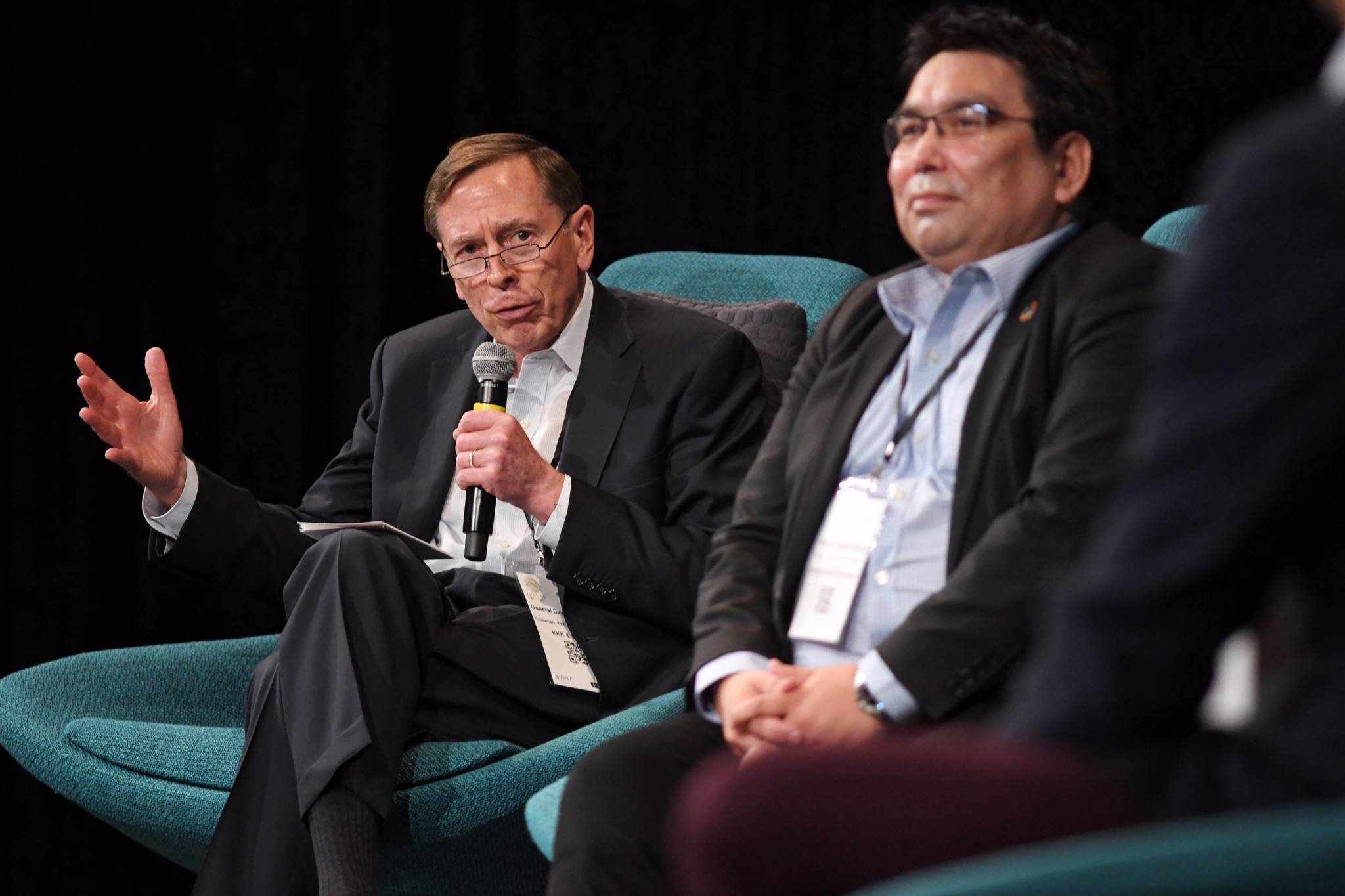It’s not every day the former Central Intelligence Agency director comes to Juneau, but one was in Alaska’s capital city Thursday.
David Petraeus, a retired four-star general and now chairman for the KKR Global Institute, was part of a panel discussion about the geopolitical implications of an increasingly accessibly Arctic during the International Forum of Sovereign Wealth Funds’ annual meeting.
The discussion was moderated by Goldbelt Inc. interim President and CEO McHugh Pierre. The panel also featured Greenland Minister for Finance and Nording Cooperation Vittus Qujaukitsoq, U.S. Coast Guard Rear Admiral Matthew T. Bell Jr., and assistant director and adviser of the Monetary and Capital Markets Department for the International Monetary Fund Udaibir Das.
[Live coverage from the IFSWF meeting from Centennial Hall]
The big takeway from the talk that closed the gathering of state-owned investment fund representatives is that climate change will mean increased activity and potentially development in the Arctic and guidelines will need to be developed to shape how that happens.
Petraeus said whether the U.S. will lead the development of those guidelines or participate in their formation through an international institution such as the G7 or the Arctic Council is a looming question.
“That is a big deal,” Petraeus said. “I do think the United States has to have a very open and forthright conversation with itself and its leaders about whether we’re going to enable such institutions.”
He asked what sort of limits will be placed on a region that “didn’t used to matter.”
“We are going to be the determining factor very likely on a lot of these issues,” Petraeus.
Das said by his count, there are eight countries who have a stake in the Arctic and another 13 countries with no actual presence but a definite interest in the region.
[The ocean has a PR problem, he’s trying to fix it]
He declined to name those nations on stage, but said they will all likely want a seat at the table when limits are being decided upon.
The eight Arctic Council members are Canada, Denmark, Finland, Iceland, Norway, Russia, Sweden and the United States. China has shown increasing interest in the Arctic recently, too.
Das said a global approach will be absolutely necessary.
Petraeus said it is important to “galvanize” an approach to the Arctic.
“There are clearly lots of common interests,” Petraeus said. “The question is who can actually drive this?”
Toward the end of the panel’s time on the Centennial Hall stage, they fielded questions from the audience.
They were asked plainly by a fund representative from Kuwait whether climate change is an economic opportunity or a danger.
The panel was split.
Qujaukitsoq said a warming Arctic will be mostly good for Greenland’s bottom line.
“It represents mostly positive for us,” he said.
Das was the most unequivocally negative about global warming and said it is a boon if you see only revenues and returns. He said from a macroeconomics view, it’s looking disastrous.
Bell and Petraeus each split the difference. Petraeus said the old political adage, “where you stand depends on where you sit” seems to apply to climate change with the warming Earth.placing some regions in danger and opening up economic opportunities for others.
[Gov says warming Arctic could be good for Alaska]
“I think where you stand on the climate change issue really depends on where you live in the world,” Petraeus said.
• Contact reporter Ben Hohenstatt at (907)523-2243 or bhohenstatt@juneauempire.com. Follow him on Twitter at @BenHohenstatt.

